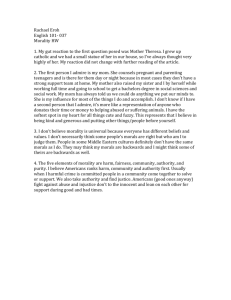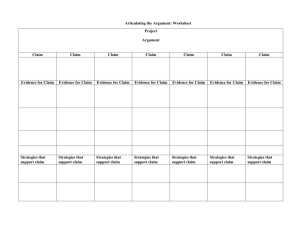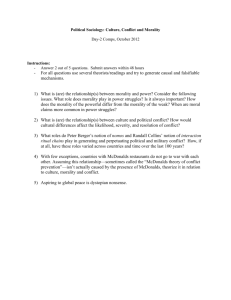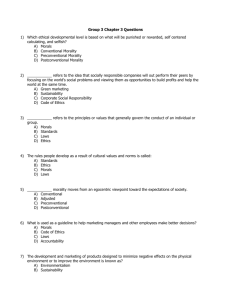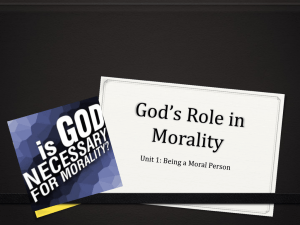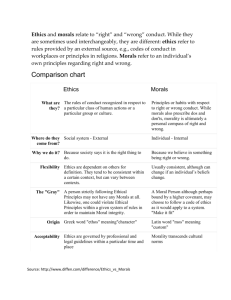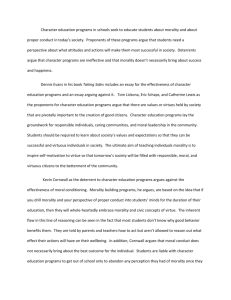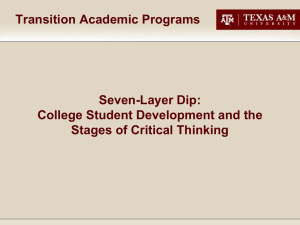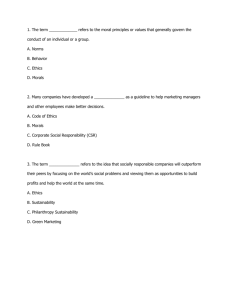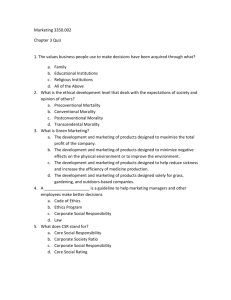What does it mean to be a moral person
advertisement
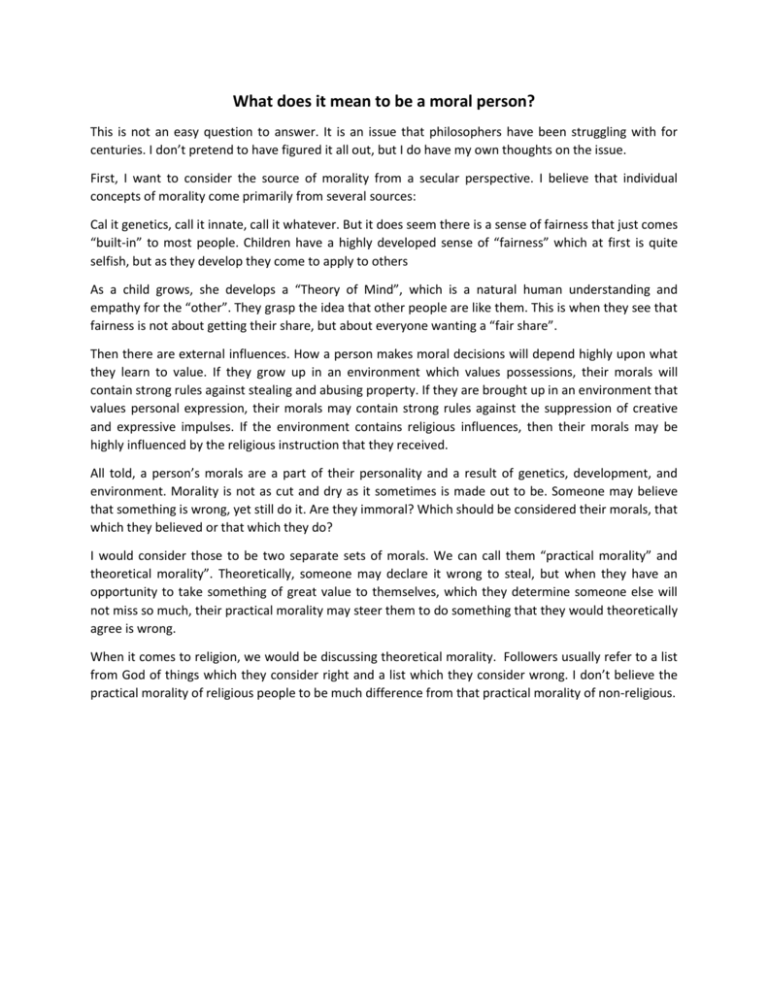
What does it mean to be a moral person? This is not an easy question to answer. It is an issue that philosophers have been struggling with for centuries. I don’t pretend to have figured it all out, but I do have my own thoughts on the issue. First, I want to consider the source of morality from a secular perspective. I believe that individual concepts of morality come primarily from several sources: Cal it genetics, call it innate, call it whatever. But it does seem there is a sense of fairness that just comes “built-in” to most people. Children have a highly developed sense of “fairness” which at first is quite selfish, but as they develop they come to apply to others As a child grows, she develops a “Theory of Mind”, which is a natural human understanding and empathy for the “other”. They grasp the idea that other people are like them. This is when they see that fairness is not about getting their share, but about everyone wanting a “fair share”. Then there are external influences. How a person makes moral decisions will depend highly upon what they learn to value. If they grow up in an environment which values possessions, their morals will contain strong rules against stealing and abusing property. If they are brought up in an environment that values personal expression, their morals may contain strong rules against the suppression of creative and expressive impulses. If the environment contains religious influences, then their morals may be highly influenced by the religious instruction that they received. All told, a person’s morals are a part of their personality and a result of genetics, development, and environment. Morality is not as cut and dry as it sometimes is made out to be. Someone may believe that something is wrong, yet still do it. Are they immoral? Which should be considered their morals, that which they believed or that which they do? I would consider those to be two separate sets of morals. We can call them “practical morality” and theoretical morality”. Theoretically, someone may declare it wrong to steal, but when they have an opportunity to take something of great value to themselves, which they determine someone else will not miss so much, their practical morality may steer them to do something that they would theoretically agree is wrong. When it comes to religion, we would be discussing theoretical morality. Followers usually refer to a list from God of things which they consider right and a list which they consider wrong. I don’t believe the practical morality of religious people to be much difference from that practical morality of non-religious. So, Healthcare and Morality and Ethics. What it comes down to is… MORALITY: A conformity to the rules of right conduct or a system of moral principles which are dictated by society. Right vs. wrong All Health care workers need to ascribe to a “Code of Conduct” and all Healthcare professionals should adhere to the following ethics: MEDICAL ETHICS 1. 2. 3. 4. Protect the patient Come to work “FIT” Be properly Educated Share Information
